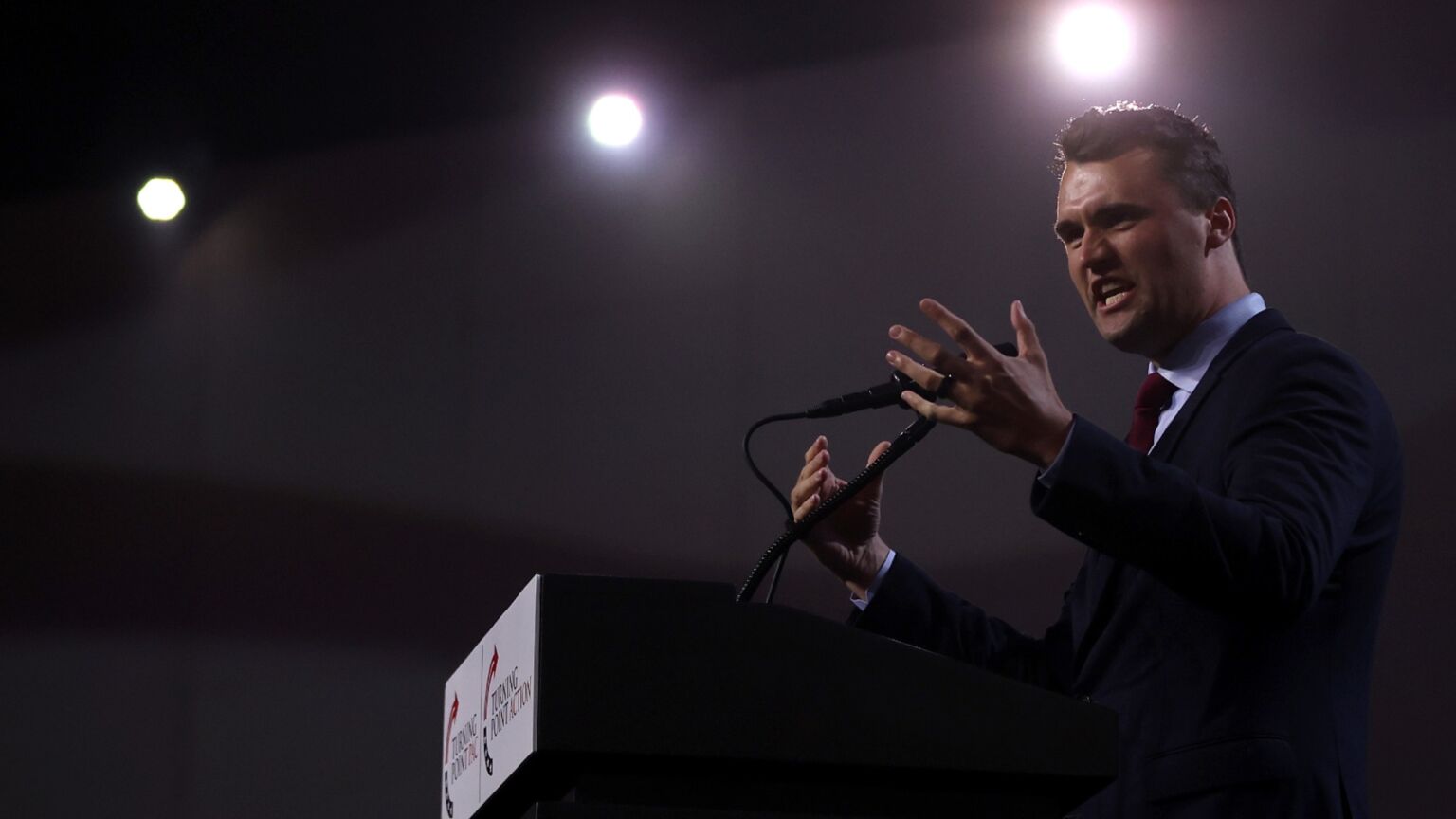How the ‘hate speech’ conceit fuels political violence

So where does one go from here? Bromides about dialing down the political rhetoric are naive. Each side sincerely believes that the other side is an existential threat. The right’s language about the threats posed by Clinton, Obama and Biden sounded as unhinged to the left as the left’s language about Trump’s fascism sounds to the right. Neither side is going to give up its assessment of the other side and the language used to convey it.
Ordinarily, this moment would elicit another bromide; that, for all our seemingly unbridgeable differences, we can at least agree that political disagreement does not license political violence. But that truism is precisely what the present moment puts out of reach.
Immediately after Kirk’s assassination there were voices on the left expressing patently sincere repugnance for what had just happened – Cenk Uygur of The Young Turks, for example. But since then, any common revulsion for Kirk’s assassination has given way to an entirely different set of narratives: about the right-wing extremism of Kirk’s views, about the threat from Christian nationalists and about Trump’s authoritarian assault on free speech. One observes this recasting of the present moment in astonishment.
Regrettably, Trump and his officials have given one aspect of that recasting material to work with. US attorney general Pam Bondi’s threat to target those who use ‘hate speech’ legitimates the very conceit that gave rise to the Kirk assassination in the first place. Bondi subsequently tried to qualify her threat, but its spirit lives on.
The right has traditionally observed that there is no ‘hate speech’ exception to free-speech protections in the US Constitution. All speech is protected or none will be. Validate the ‘hate speech’ idea with government action and the left, when it retakes the White House, will use the now fortified concept to cast an even wider net around conservative ideas. Was the left doing so already? Yes. Will that crackdown get worse if Republicans solidify the precedent? Also yes.
The administration’s missteps did not end with Bondi’s embrace of ‘hate speech’ terminology. Federal Communications Commission chair Brendan Carr’s Mafioso-like threat to ABC and Disney that ‘we can do this the easy way or the hard way’, unless those broadcasters took Jimmy Kimmel off the air, was another mistake, not mitigated by the fact that Kimmel is now back on air. The Trump administration is destroying its moral advantage as the vindicator of free speech.
Conservatives are now arguing publicly against the claim that Kirk was a far-right extremist, as he is now routinely labelled not just in the American press but in German, British and other establishment foreign media outlets as well. Kirk’s defenders insist that his views did not amount to ‘hate’. They are correct. If Kirk is a ‘hater’, then so are millions of ordinary Americans who share his convictions. The instinct to defend those convictions is understandable. And yet to even engage in this debate implicitly validates the concept of ‘hate speech’, by trying so hard to fend off the label. The real point is that even if your speech is deemed ‘hateful’ by some or by all, you may not be punished by the government and you sure as hell should not be killed by a vigilante.
So what can be done? Trump’s initiatives against the incubators of the ‘hate speech’ conceit – the universities – are even more urgent than before. It is impossible to call back their graduates, who now populate entire industries, whether entertainment, teaching, philanthropy, government, the press, the nonprofit sector, or medical and law associations.
But one can try to decrease the rate at which new hosts of the anti-Western virus are produced, so long as those efforts rely only on settled law against discrimination.
Ideally, competing universities would spring up where students would discover the debt they owe to Western civilisation and where they would be educated enough to bow down in gratitude before the sublimity of Western music, literature, art, political theory and science. But such institution-building takes time.
It is almost as hard to decouple from the school system, but after what we have learned since 10 September about the teaching corps, children need to be airlifted out as soon as possible. Conservative philanthropists should accelerate the classical-education movement.
There has been an explosion of interest in new Turning Point chapters in colleges and high schools. Realising that potential will take organisational infrastructure; donors and volunteers will be needed here, too.
It is too much to ask that liberals and leftists share the extent of conservatives’ grief over Kirk’s loss. Trump’s use of federal resources to commemorate Kirk arguably went too far. If a right-wing assassin killed ‘anti-racist’ activist Ibram X Kendi, say, and a Democratic president ordered flags at half-mast and declared Kendi a national hero, the right would object. A conservative may protest that the cases are not comparable, but to the left they would be. We are so polarised that there are few heroes remaining that all Americans would acknowledge.
But we can ask that the left and liberals repudiate, without qualification, without a ‘well, but he did say this or that’, the murder of a peaceful proselytiser, someone who sought to use America’s liberty of speech to persuade his opponents that their beliefs were in error.
The mainstream media are now sneering that Kirk has become a martyr to the right. Indeed he has. And his martyrdom may inspire a counterrevolution. The 21 September memorial service in Arizona touched on a profound debate between forgiveness and retribution. One hopes that the only vengeance exacted for Kirk’s murder is breaking up the left’s ideological hegemony, and doing so through clearly lawful means. But one fears that Kirk’s blood will not be the last blood shed.
Heather Mac Donald is Thomas W Smith fellow at the Manhattan Institute and the author of When Race Trumps Merit.